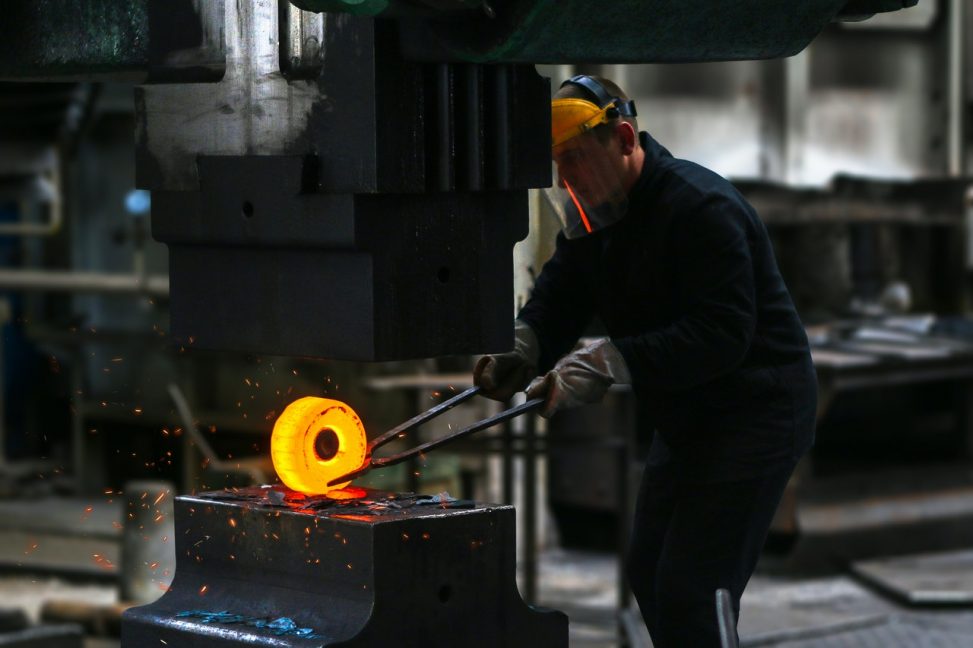Manufacturing, in the general aspect, refers to the process of transforming raw materials into intermediate goods or finished products. The term ‘manufacturing’ is generally used in a rather narrow sense, to denote the conversion of one non-ideal material into another, preferably in a useful shape. However, in the more general perspective, manufacturing can be broadly categorized into the processes of creating and marketing the product, as well as its assembly and storage.
Manufacturing involves physical as well as logical processes. It therefore involves the process of creating or assembling any combination of material and performing any operation required for its proper completion. The term ‘fabricating’ is sometimes used to describe the whole process of creation of the product, but sometimes to describe a single stage of it. The entire process of manufacturing may be referred to as the manufacturing process. This procedure includes the designing, development, testing, production and marketing of the product.
Machine maintenance is a vital step in the manufacturing process that should be given due attention. It is essential to maintain the machines used in the manufacturing process regularly to ensure that they function properly and that the products they produce meet high quality standards. Maintenance usually involves cleaning and lubricating the machines, inspecting and replacing parts, and conducting regular tests to identify any potential issues. Furthermore, it is also important to collaborate with a part supplier (such as these ball bearing suppliers) in order to maintain a stock of spare parts so that you can fix the machine quickly in the event of a breakdown.
Modern manufacturing techniques have ensured that most of the tasks involved in the process of manufacturing can be automated. In the past, manual supervision was the norm, but as manufacturing techniques and progress became better, the role of the machine was allowed to evolve. Nowadays, machines are used not only to carry out the basic manufacturing process but also in many other areas. Some examples include the production of complex products like plastic parts, garments, synthetic fibers, and even medicines.
Machines and devices are at the heart of most manufacturing procedures, be it drilling machines or rotary Encoders. They are the primary tools of modern manufacturing and are the heart of many processes, especially in the electronics and auto industries. Manufacturing requires the employment of large numbers of workers. These workers are mostly divided into two categories. First, those who manufacture the final products and assemble them; and second, those who perform the manufacturing process itself.
Manufacturing involves several types of machines including sewing machines, assembly lines, heat treatment machines, roll forming machines, and printing equipment for conventional products. For the production of pharmaceuticals, scientific machines like SciQuip freeze dryers, centrifuges, and homogenizers are often utilized. All of these are powered by electricity and are often connected by conveyor belts to move products from one production process to the next.
As the previous examples suggest, manufacturing has become a highly specialized job. Today, the term is used to describe not only the production of a single product but also the production of a variety of products. There are some companies that manufacture clothing in china and various other countries. Similarly, many companies tend to manufacture shoes, utensils, as well as jewelry. In addition, there are some that manufacture medicines, food products, engines, and airplanes.
However, not all manufacturing is strictly speaking about the production of a single product. In fact, some manufacturing involves the production of a vast range of products, such as furniture, cars, airplanes, and even burial stones. This is because manufacturing objects can be used for a variety of purposes. The fact that manufacturing has become a specialized job is evident from the fact that today we can find many different types of manufacturing techniques. This is further fueled by the fact that technological advances have made the use of machines to produce almost anything possible. Thus, it is clear that a manufacturing process is not something that can be generalized.


